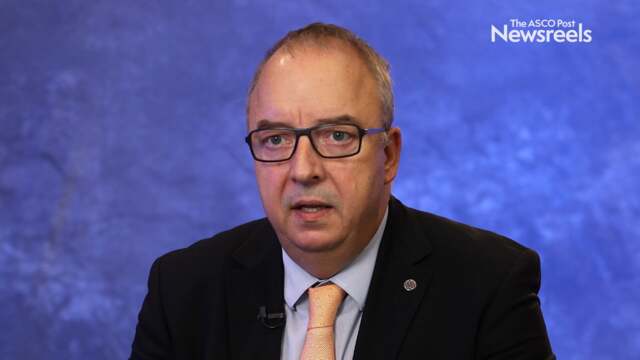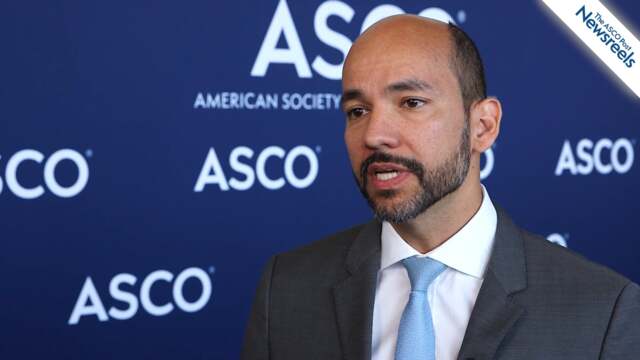Jeremy S. Abramson, MD, on Non-Hodgkin Lymphoma: Results From the TRANSCEND NHL 001 Trial
2018 ASCO Annual Meeting
Jeremy S. Abramson, MD, of the Massachusetts General Hospital, discusses study findings on lisocabtagene maraleucel in relapsed or refractory aggressive NHL (Abstract 7505).
Michael Gnant, MD, of the Medical University of Vienna, discusses study findings on adjuvant denosumab in early breast cancer––a disease-free survival analysis of postmenopausal patients.
Robert L. Coleman, MD, of The University of Texas MD Anderson Cancer Center, discusses phase III study findings on secondary surgical cytoreduction followed by platinum-based combination chemotherapy, with or without bevacizumab, in platinum-sensitive, recurrent ovarian cancer (Abstract 5501).
Toni K. Choueiri, MD, of Dana-Farber Cancer Institute, and Jonathan E. Rosenberg, MD, of Memorial Sloan Kettering Cancer Center, discuss their perspectives on the top abstracts in bladder cancer presented at the 2018 ASCO Annual Meeting (Abstracts 4507, 4506, 4503, 4504).
Gilberto Lopes, MD, MBA, of the Sylvester Comprehensive Cancer Center at the University of Miami, discusses phase III findings on pembrolizumab vs platinum-based chemotherapy as first-line treatment for advanced/metastatic non–small cell lung cancer with a PD-L1 tumor proportion score ≥ to 1% (Abstract LBA4).
Danny Rischin, MD, of Peter MacCallum Cancer Centre, discusses phase II study findings on cemiplimab, a human monoclonal anti–PD-1 antibody, in patients with metastatic cutaneous squamous cell carcinoma (Abstract 9519).





